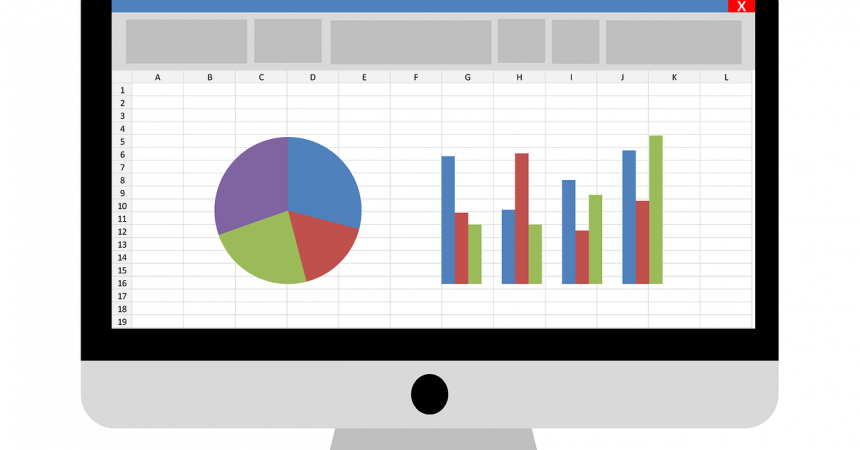Business Analytics: Decision Making through Excel (Synchronous e-learning)
Analytics & Operations
SGD 3,106.50
(SGD 361.95 after *MAX Funding)
15 Jan - 14 Feb 2025
7:00 pm - 9:30 pm
Live Online (every Wed & Fri, via Zoom)
Intermediate
Overview
Business Analytics: Decision Making through Excel
We are now in the era of big data. Companies are able to collect a tremendous amount of data, very often more than necessary, with ease at an inexpensive cost.
“Information is Power” is no longer valid if companies are not able to make correct decisions timely on the basis of the data on hand. The use of business analytics for modeling and decision making represents the future of best practices for tomorrow’s companies.
This course prepares participants with fundamental theory and skills to capture business insights from data for decision making using Excel Spreadsheets. Practical examples and cases with data are used to stimulate participants’ interest and foster their understanding of the use of Business Analytics in management and business.
Quantitative models and tools such as Decision Analysis, Simulation Modeling and Optimization are covered to demonstrate the use of scientific methods in business decision making.
Note: Courses that are scheduled to take place from 1 October 2024 onwards will open for registration in mid-August on our brand-new application portal. Please register your interest here to be notified once these courses are ready to accept your application.

Outline
Online Session 1:Data Intelligence to summarize data obtained
- Use Excel formulae and cell referencing
- Conduct basic summary of data
Online Session 2: Pivot Table analysis
- Use Pivot Tables in Excel to stratify data
- Use Pivot Charts to visualize data
Online Session 3: Foundation of Decision Making under Uncertainty I
- Compute conditional probabilities
- Understand and use Bayes’ rule
Online Session 4: Foundation of Decision Making under Uncertainty Ii
- The concepts of random variables
- Differentiate between discrete and continuous probability distributions
Online Session 5: Introduction to Simulation Modelling
- Use Excel to simulate a variety of random variables
- Carry out Simulation to analyse business decision problems
Online Session 6: Decision Trees
- Illustrate a decision tree and its power in decision making
- Use decision tree to make business decisions under uncertainty
Online Session 7: Introduction to Linear Optimization
- Formulate a Linear Programming (LP) mathematical model
- Solve the optimal solution of an LP using Excel solver
Online Session 8: Introduction to Discrete Optimization
- Construct binary constraints
- Logical constraint formulation
- big-M notation
Online Session 9: Assessment

Who Should Attend
The course is suitable for those who are interested in business analytics without any prior knowledge. Specifically, the course assumes that participants are new to the Analytics field without any programming and probability concepts, and will introduce Microsoft Excel to them as the main computing software. By familiarizing themselves with Excel, the participants can carry out those decision methods for their future business projects with ease.
Application Procedure & Deadline
Participants are strongly advised to apply at least 2 weeks in advance.
Pre-Requisites
This course assumes a very basic level of comfort with Microsoft Excel. Participants should be able to import data, sort it, and perform simple functions such as addition, multiplication, division, and creating tables in Excel. Participants will be required to bring their laptops to class, and to analyze data in class using Excel Spreadsheets. All analyses in this course will be carried out using Excel.
Fees & Funding*
| Self-Sponsored | SME (ETSS Scheme) Company-Sponsored |
Non-SME Company-Sponsored |
|
| Course Fees | S$3,106.50 | S$3,106.50 | S$3,106.50 |
| Singapore Citizens & PRs | S$931.95 | S$361.95 | S$931.95 |
| Singapore Citizens aged 40 years and above (MCES Scheme) | S$361.95 | S$361.95 | S$361.95 |
The above prices are quoted in Singapore dollars (SGD), inclusive of 9% GST.
*Applicable funding is for Singaporean and Singapore PR. This is subject to change and in accordance with SSG funding guidelines as of course commencement
Faculty

TUNG, Yi-Liang
Lecturer Analytics and OperationsTHE NUS EXECUTIVE MSc IN MANAGEMENT (EMIM)
24 Months | Hybrid-Learning. Executive-friendly format.
Explore The NUS Executive Master of Science in Management Programme, rooted in the ethos of lifelong learning. Our transformative program is designed to empower and equip mature learners from diverse educational backgrounds with the latest knowledge and essential management skills, all within a dynamic and multicultural setting. A prior bachelor’s degree is not mandatory for admission.
- Small/medium business owners looking to acquire formal education
- Former civil servants looking to transit into the private sector
- People who have done well in business without any formal training and are looking to further develop their skills or credentials to grow
- The middle-aged career candidates that would like to attain a degree
- People who are in transition from career sabbatical and back to professional life
Learners will
- gain a holistic perspective of business operations, corporate finance and accounting, and the key drivers of firm performance as well as the interrelationships among them,
- learn about the key themes on qualitative and quantitative components of management, strategy making and execution, and facilitating them in organisations,
- develop skills in data-informed analysis,
- communicate and work collaboratively in teams to solve challenging problems, and
- develop sensitivity to stakeholders’ requirements and learn to work towards meeting them.
Learner will need to attain at least a Merit grade for just 2 gateway courses (with the Financial Analysis and Business Decisions for Non-Finance Managers gateway course as mandatory) as part of the admissions criteria to the EMIM programme.

People who viewed this course also visited:
All Courses
Financial Analysis and Business Decisions for Non-Finance Managers (Synchronous e-learning)
Business performance is measured using financial statements. Management is expected to create value for the company. To create value, a good grasp of financial principles is absolutely essential. However, many non-financial managers do not fully grasp financial and accounting concepts. Value will not be optimised when this happens. In this workshop you will enhance your business acumen and financial analysis skills. After this, you will be better at making business decisions and taking your business to the next level!

Financial Statement Analysis
This course will empower you with the skills to analyse and interpret financial statements, allowing you to effectively evaluate the performance and financial strength of companies. You will learn to:

Strategic Management: Strategic Acumen, Competitive Strategy
Strategic management is critical to the development and growth of every organisation. Successful positioning amidst a competitive environment requires the ability to understand and to formulate a coherent strategy.


